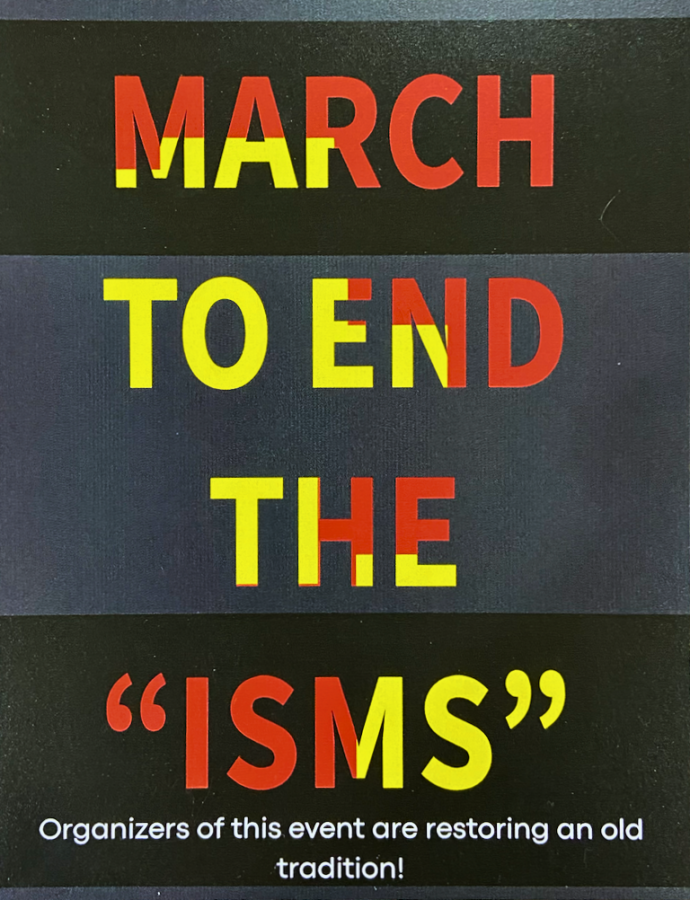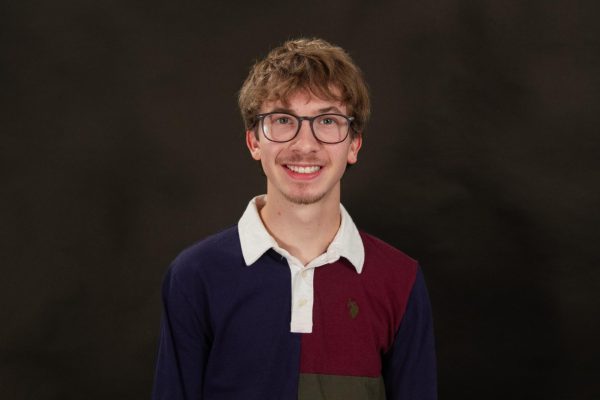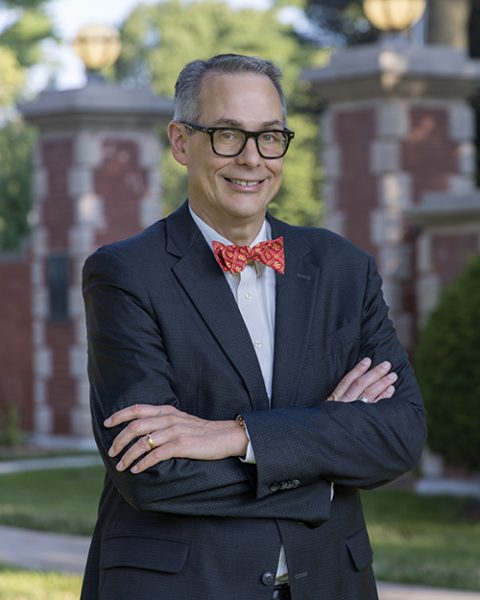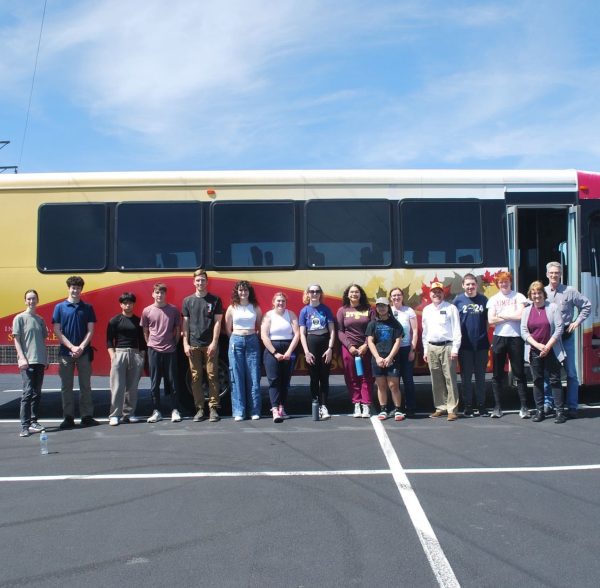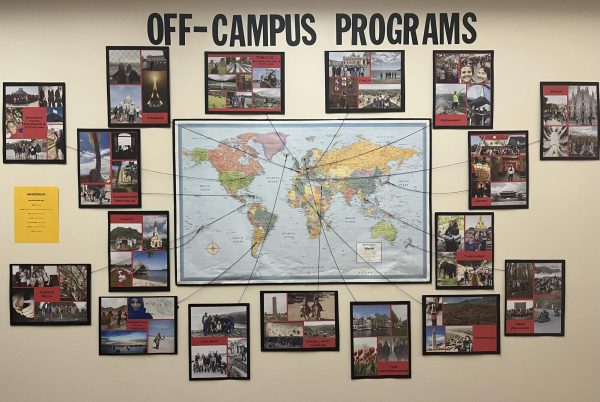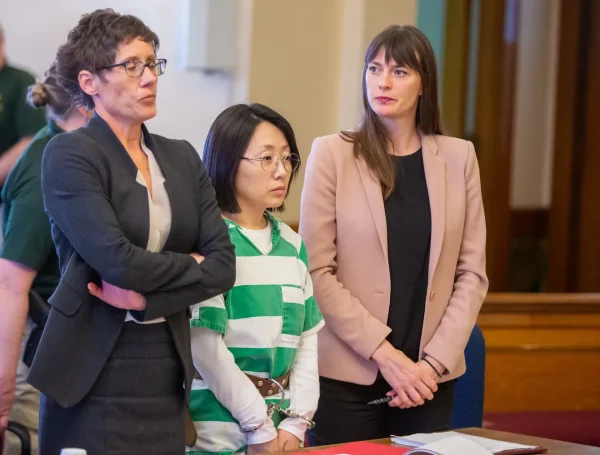March Against ‘Isms’ makes a comeback
March 29, 2023
Racism, sexism, ableism, homophobia, classism and size-ism. Read that again before you continue.
Now that you have read them, what do those words mean to you? Nothing? Everything?
Regardless of the importance they play in your life, there are real people that face those forms of oppression every single day.
These are just some of the ‘isms’ that plague our society and make people uncomfortable in their own skin.
Reviving the 19-year-long tradition, Tisha Carter-Smith, the associate director of the Office of Multicultural and International Affairs, will bring the march back to Simpson after a three-year hiatus because of COVID-19.
Alongside Carter-Smith and the Office for Diversity, Equity and Inclusion (DEI), the support from Simpson College Religious Life Community (RLC), Carver Fellows and the Culver Public Policy Center have made this year’s march possible.
“Our goal is to raise awareness of societal issues concerning our student body as well as to express our commitment to those issues to the community at large,” Carter-Smith said.
In 2003, there was a campus contest to do an “ounce of kindness.” Professor of social work and criminal justice Carolyn Dallinger recalls that this sparked a bigger idea—a march to end the “isms.”
“Two students, Omar Padilla and Bobby Nalean, and two staff/faculty, Walter Lain, Assistant Dean of Multicultural and International Affairs, and myself [Dallinger], Professor of Criminal Justice & Sociology, got together and proposed the march and rally to celebrate diversities at the college and the wider community,” she said.
The march took hold the next year in the spring of 2004.
“Over the years, Simpson College has stood behind its continuation,” Carter-Smith said.
In an article published in The Simpsonian in 2005, “Simpson organizes second march to ‘end the ‘isms,’” Walter Lain, the now-retired Assistant Dean of Multicultural and International Affairs, emphasized the importance of such an event in the community.
“The intent is to say that ‘yeah, we’re different, and we have different views, but despite our differences, we can still celebrate the strength of our community,” Lain said. “Because of those differences, we are able to respect the rights of others.”
“‘The March to End the ‘Isms’ is a combination of marching, listening to speakers, enjoying good food, and just learning from and enjoying others,” said Dallinger. “The hope is to educate about the importance and enjoyment of our diversity and our similarities.”
This year, poet/activist/spoken word artist Caleb Rainey, or “The Negro Artist” will be speaking during the event.
“Rainey, who performs in recognition of the enormous influence of poet Langston Hughes and other artists of the Harlem Renaissance movement of the early 20th Century, will inspire students to march with pride, purpose, and a commitment to the spirit of love to overcome hate,” Director of the Culver Public Policy Center, Seth Anderson, said.
Chaplain Mara Bailey talked about what this event means for RLC.
“The list of ‘isms’ is endless, it seems, and to know that somewhere within that list, there is something that impacts each one of us. So, our causes might be different, but our purpose is the same. I think it’s a great opportunity to stand as a community in that showing,” Bailey said.
The religious life community will be helping to coordinate the food available after the rally and also providing guidance and suggestions around student speakers and other logistics.
The march also coincides with the religious life’s Justice Week and will be the kickoff for the planned programming for that series of events.
“Justice Week is an opportunity we take to educate the campus on the difference between service and justice. Justice being the opportunity to take a deeper look at issues within communities,” Bailey said. “Whether it’s hunger, poverty, homelessness, food insecurity, immigration or environmental impacts, it’s great to meet the need that exists, but to take a deeper look at why that need exists in the first place.”
The march will begin at about 5 p.m. after Caleb Rainey’s presentation. It will start at Kent Campus Center, go south on D Street, turn left on Salem Avenue, head west down Buxton Street and return to campus.
“As COVID has taken away so much during its 3-year tenure of disruption, I am honored to be able to bring it back,” said Carter-Smith. “I can only hope that it will be at the same level that it once was. If not this year, then next year — which will be the 20th anniversary.”
Anyone and everyone are encouraged to join the march to make a stand against these ‘isms’.



